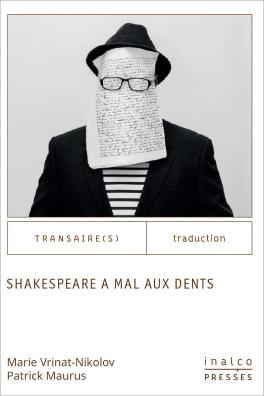
Shakespeare Has Toothache
(What do we translate when we translate?)
Series : TransAire(s)
Subject : Translation
25 €
Presentation
To understand what the act of translating involves, we must deconstruct each step of the process, for it is fundamentally plural.
Where do we translate? The fields of publishing, criticism and academia battle for an authority they refuse to translators, who are expected to be modest and transparent.
Who translates when we translate? Translation actors are surprisingly prolific, intervening not only in the paratext, but also in the text itself. Obsolete perceptions of language and So-Called Literature impose choices that all too often lead to the annexation of the original.
What do we translate when we translate? It is time to free translating from linguistic determinations in order to consider the translated object in all its forms: text, book, merchandise.
Once “translating” has been defined as a profoundly literary operation, we must outline methodologies to transfer sociality in a single operation.
Each mark, sign and value must correspond to a mark, sign and value in the translated text – not to mention what is revealed by rhythms, materiality and the history of So-Called Literature, which are all too often overlooked.
Interview
Authors
Marie Vrinat-Nikolov is a professor of Bulgarian language and literature and responsible for the Literary Translation Master’s programme at Inalco. She has authored many publications on translation thought, and translated books, short story collections, poems and plays by Bulgarian authors into French.
Patrick Maurus is professor emeritus of Korean at Inalco, and a translator. He directs a collection at Actes Sud publishing house.
238 pages
16 x 24 cm
Publication: 24/05/2018
ISBN: 9782858312443